Puppy Care: Simple Tips for New Dog Parents
Got a wiggly new pup and a head full of questions? You’re not alone. Raising a puppy is a mix of excitement, messes, and endless learning. Below are the must‑know basics that will keep your furry friend safe, happy, and on the right track.
Training & Safety
Start with one‑minute training sessions. Puppies have short attention spans, so keep lessons brief, fun, and consistent. Work on “sit,” “stay,” and the essential “no.” Use positive reinforcement—treats, praise, or a quick game of fetch—every time they get it right. If they ignore the command, pause and try again later; never yell or punish.
When it comes to letting your pup roam the house, timing matters. Begin by puppy‑proofing a single room. Remove cords, small objects, and anything chewable that could choke them. Open the door only when you can supervise. As confidence builds, gradually expand the safe zone. This step‑by‑step approach stops accidents before they happen.
Chewing is natural, especially during teething. Choose sturdy chew toys made for puppies—rubber rings, soft rope toys, or freeze‑dried treats. Avoid anything that can break into small pieces. Swapping out a chew toy when it gets worn keeps your pup’s teeth safe and your shoes intact.
Nutrition & Health
Food is the foundation of good health. Look for puppy‑specific formulas that list high‑quality protein as the first ingredient. Avoid foods with excessive fillers like corn or wheat. If you’re curious about homemade options, ground chicken can be a safe addition—just make sure it’s fully cooked and free of seasoning.
Vaccinations aren’t optional, even for indoor puppies. Core vaccines protect against kennel cough, parvovirus, and distemper. Talk to your vet about the schedule; most puppies need shots at 6‑8 weeks, then every 3‑4 weeks until they’re 16 weeks old.
Regular vet check‑ups catch health issues early. Bring a list of any concerns—scratching, loose stools, or changes in energy levels. Early detection means quicker treatment and less stress for both of you.
Finally, remember that treats are a great training tool but should be given in moderation. A handful of high‑value treats a day is plenty for most small to medium puppies. Balance treats with a measured portion of balanced kibble to keep weight in check.
Raising a puppy is a marathon, not a sprint. Stick to short, positive training sessions, keep the environment safe, feed a balanced diet, and stay on top of vaccinations. Before you know it, your little furball will grow into a well‑behaved, healthy companion ready for any adventure you throw their way.
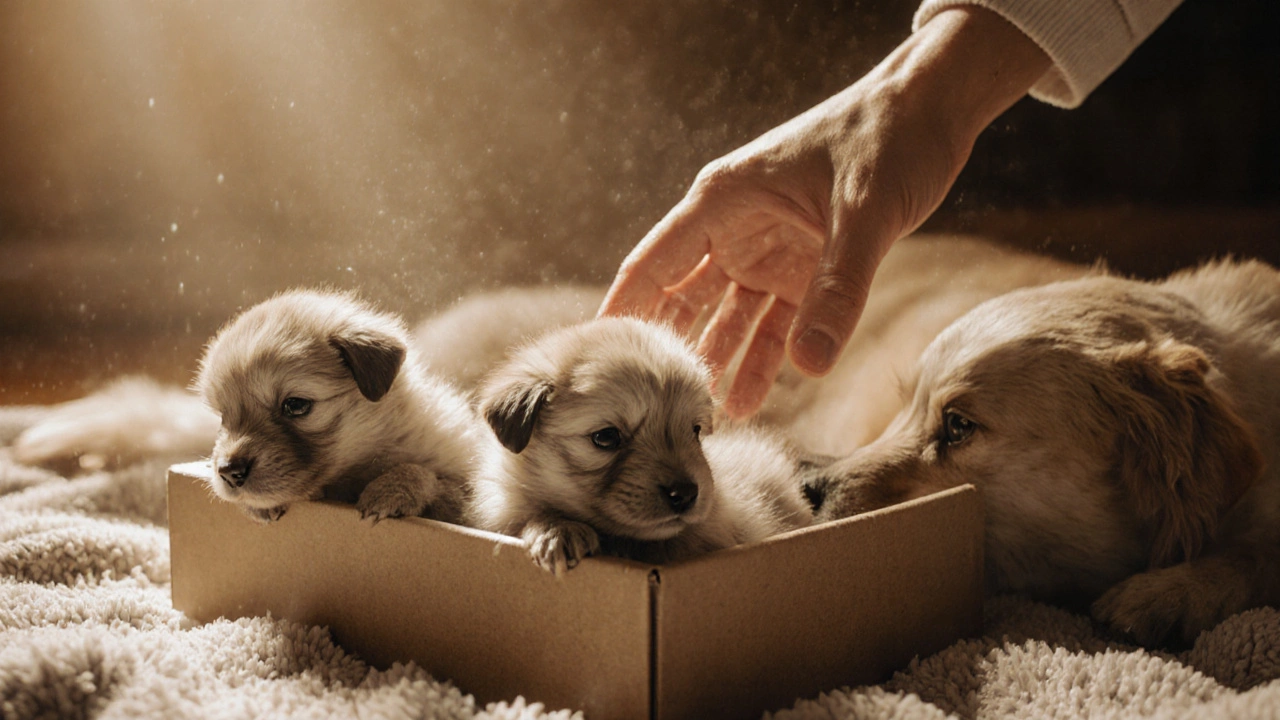
Can You Touch 3-Day-Old Puppies? Risks, Guidelines & Safe Handling Tips
Learn if and how to safely touch 3‑day‑old puppies, the risks involved, and step‑by‑step guidelines to protect their health and development.
View more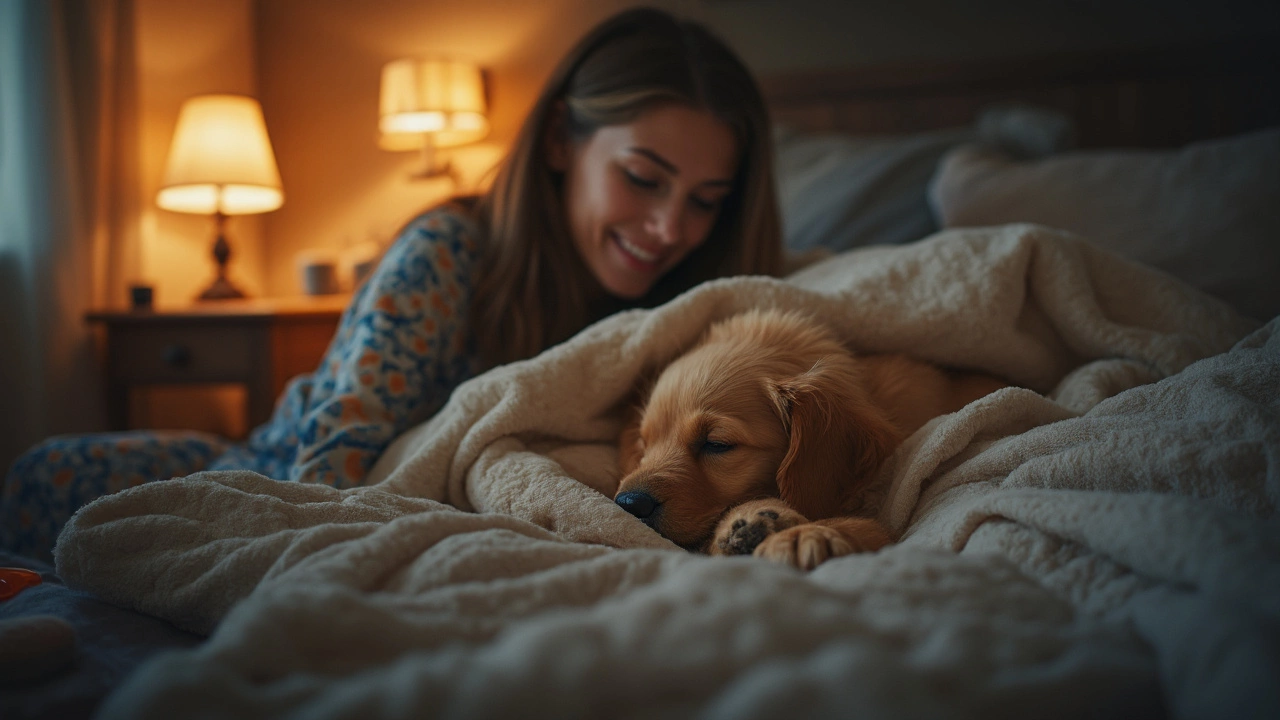
Can an 8 Week Old Puppy Sleep Through the Night? What to Expect
Worried your 8 week old puppy won't let you get any rest? This article explains what’s normal for puppy sleep at this age and why their nights don't always match yours. You’ll get real-world tips for helping your pup (and you) get more sleep. Learn how long puppies can actually hold their bladder, and find out how to set up bedtime for better nights. Whether you’re a first-time puppy parent or just need reassurance, this guide has you covered.
View more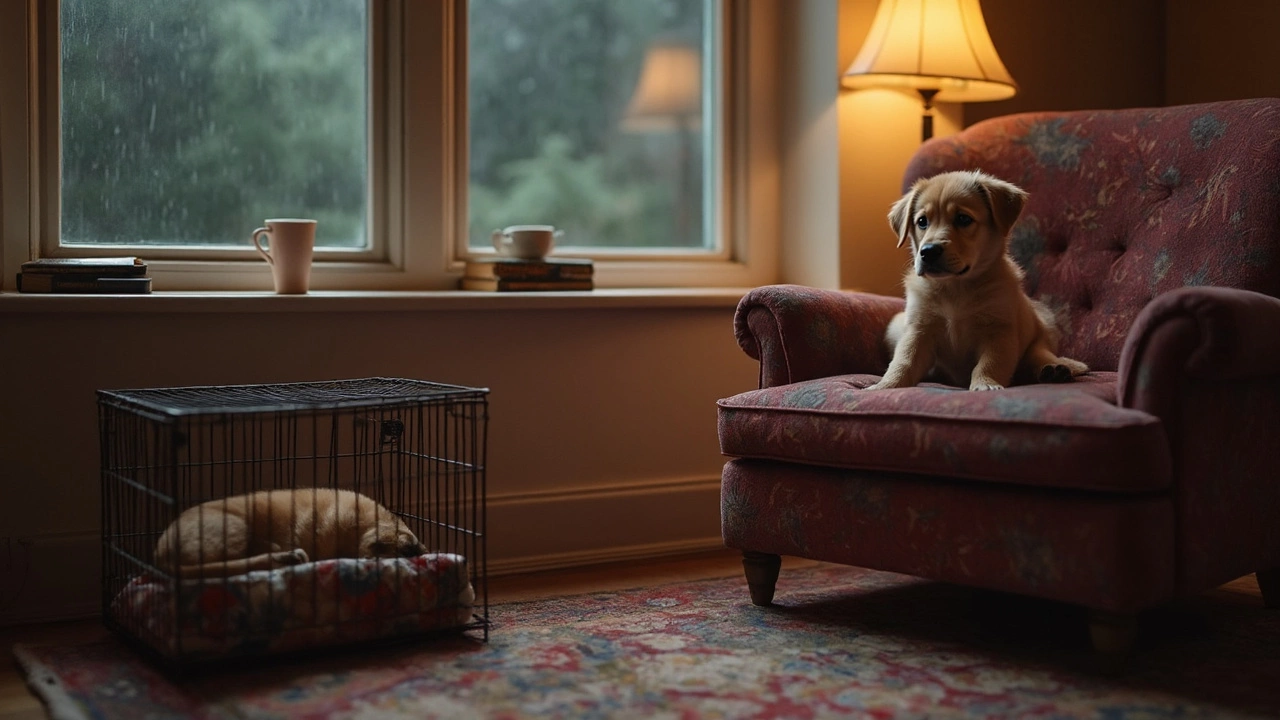
Should a Puppy Sleep in a Crate? Simple Facts and Real-Life Tips
Ever wondered if your new puppy should sleep in a crate? This article breaks down the pros, the drawbacks, and the best approaches for crate training at night. Discover what actually works for comfort, house-training, and safety, plus some surprising facts from real dog owners. Find out what your puppy might prefer and how to avoid the most common mistakes. Get practical, no-nonsense tips whether you’re a first-time pup parent or still on the fence about crates.
View more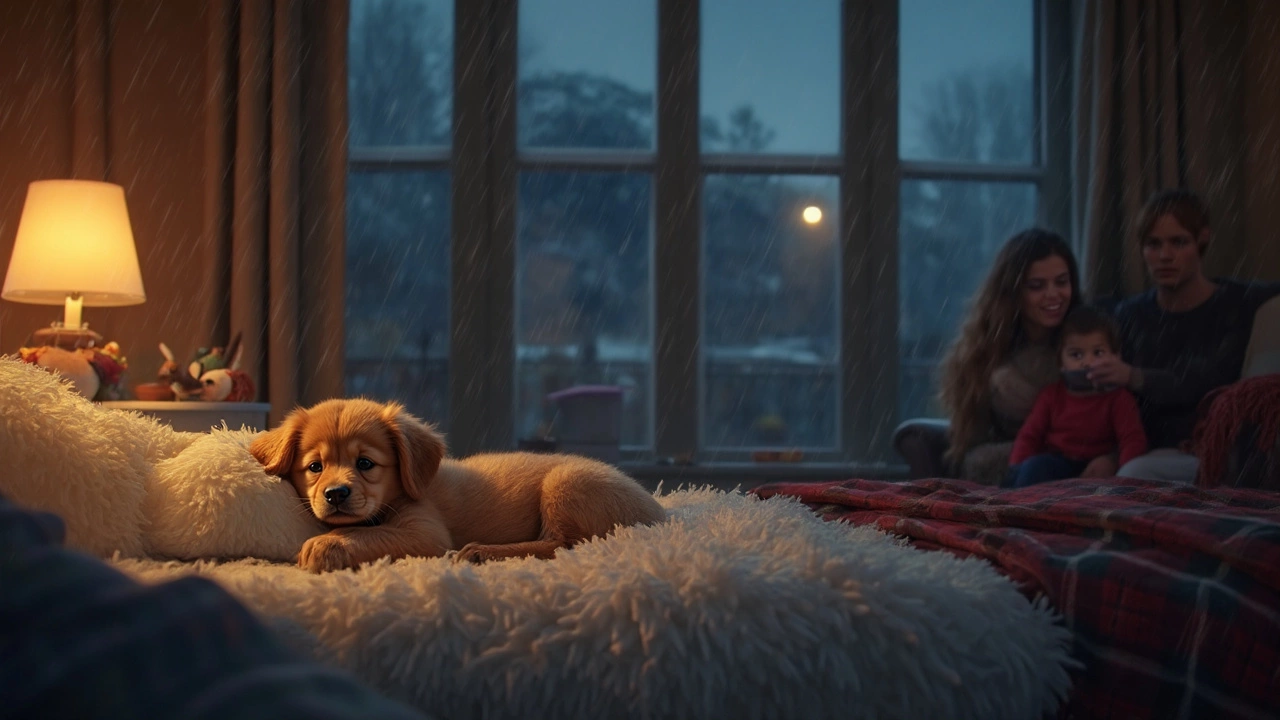
Should I Wake My Puppy at Night to Go Potty? Simple Answers for Sleep-Deprived Owners
Are you supposed to wake your puppy at night so they won’t have accidents? Eating, sleeping, and bathroom breaks are a puppy’s full-time job, and nighttime can get tricky. This article breaks down whether you need to set those midnight alarms plus when you can finally enjoy a full night’s sleep again. Expect real tips to prevent accidents, protect your sleep, and raise a well-trained pup.
View more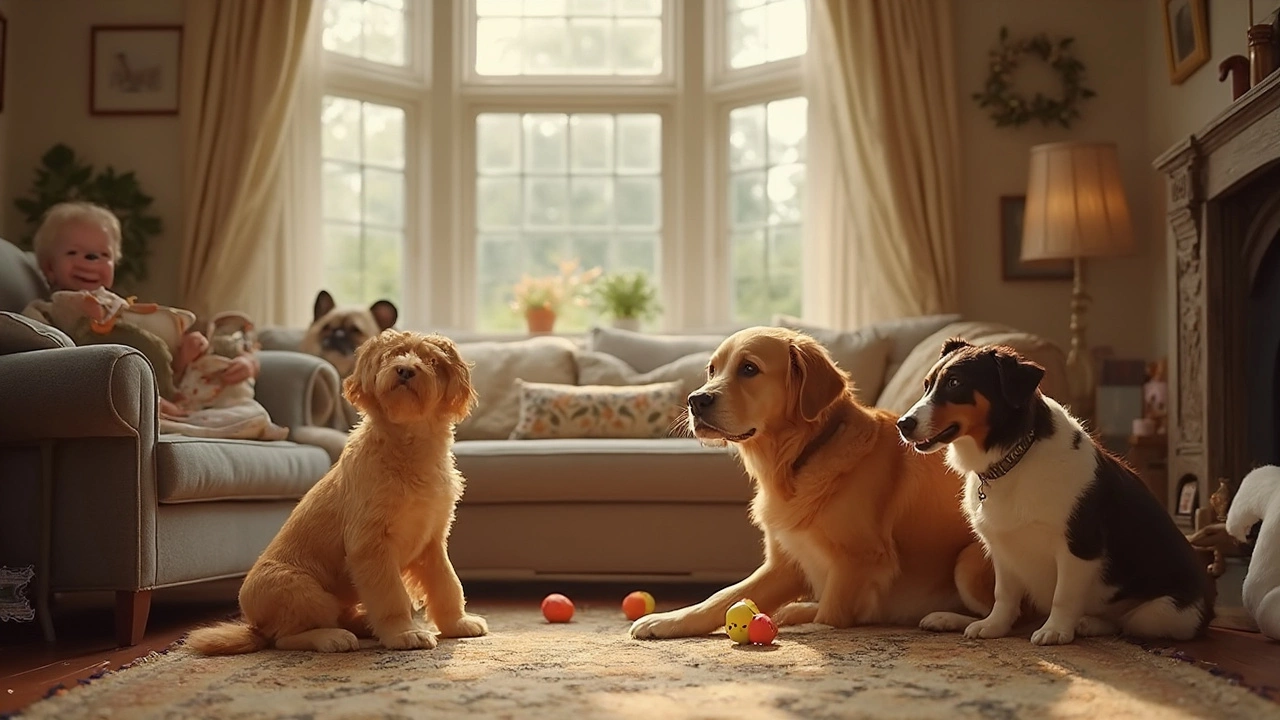
When Is a Puppy Not a Puppy? Understanding the Real Transition
Puppies don't stay tiny and clumsy forever, but exactly when do they stop being puppies? This article breaks down the transition from puppyhood to adulthood, looking at what changes physically, mentally, and socially. You'll find out how breed sizes play a big role, how behavior shifts over time, and why your 'little baby' may start acting more like a moody teenager. There are practical tips to spot the signs of growing up and advice for handling those awkward in-between months. If you're raising a pup, this guide is your go-to for understanding when your dog truly leaves puppyhood behind.
View more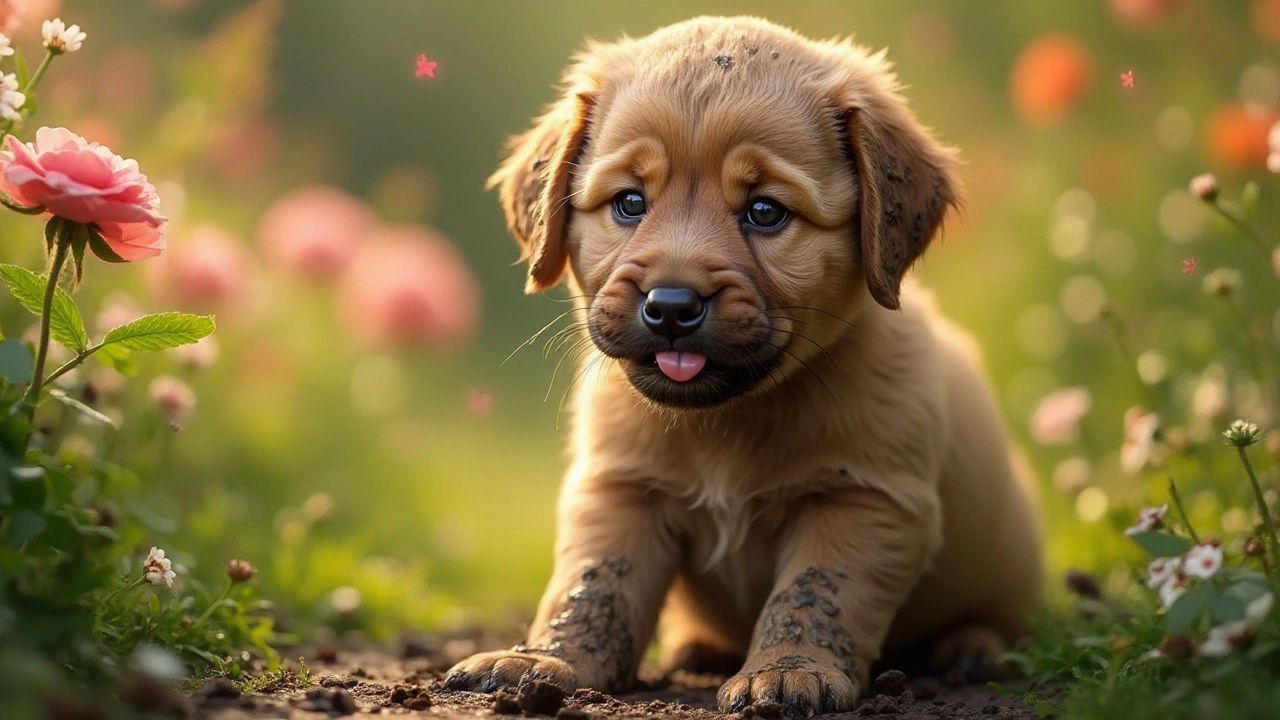
Understanding Dirty Dog Syndrome: How to Keep Your Pup Clean and Happy
Dirty Dog Syndrome, though not an official medical condition, refers to the state where a puppy appears persistently grimy despite regular grooming. This article delves into reasons why puppies sometimes don't stay clean and offers practical solutions to ensure they maintain their pristine coats. From understanding a puppy's play behaviors to using the right grooming tools, we've got you covered. Uncover the secrets to balance a pup's natural exploratory instincts with good hygiene practices. We’ll also explore why some puppies seem to defy cleanliness more than others and what you can do about it.
View more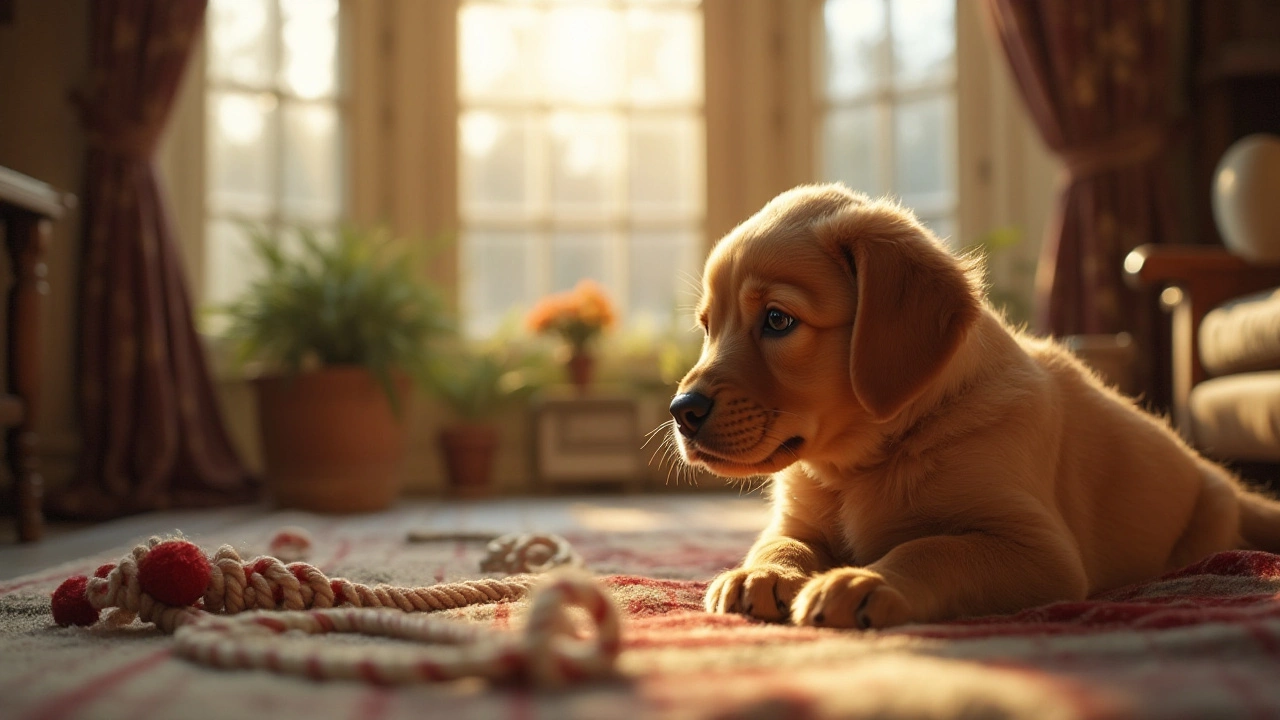
Can You Safely Leave a Puppy Alone for 8 Hours? Tips and Toys for Happy Puppies
Leaving a puppy alone for an extended period can be challenging for both the owner and the pet. Young dogs have specific needs and require a lot of attention and care, especially in their formative months. By choosing the right toys and taking certain precautions, owners can ensure that their puppies are comfortable when alone. It's crucial to understand a puppy's needs, how to keep them entertained, and when it's safe to leave them alone for extended periods.
View more